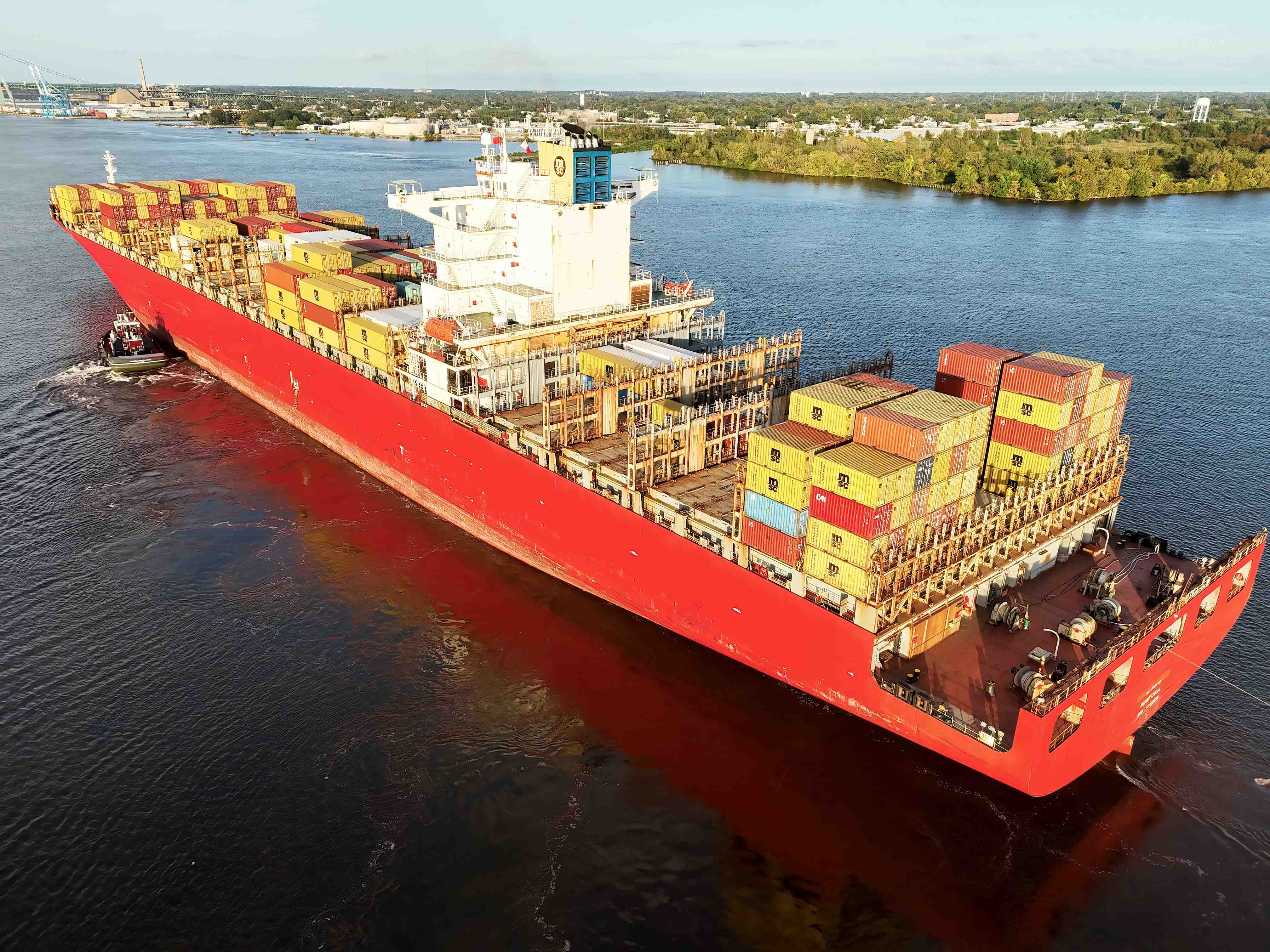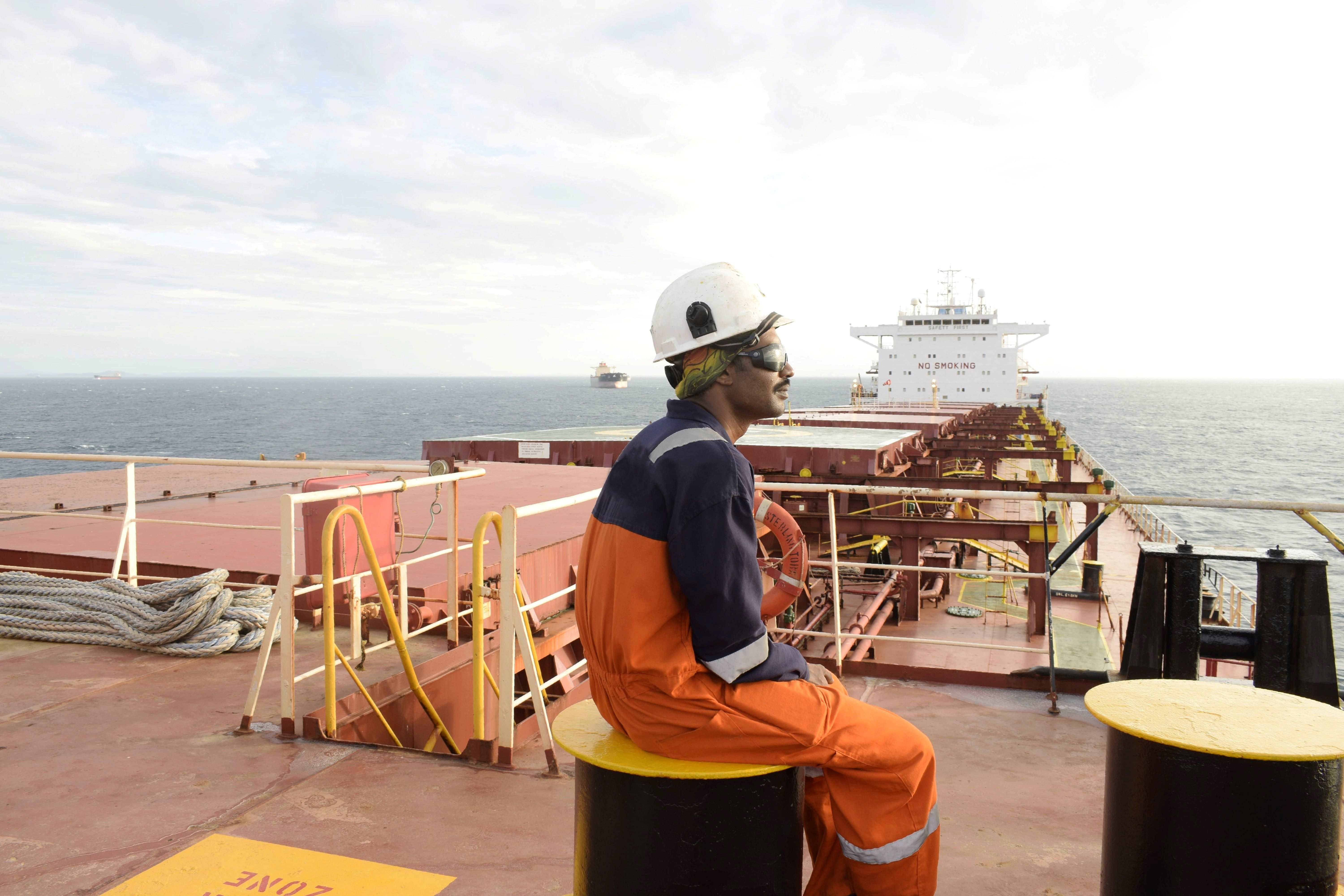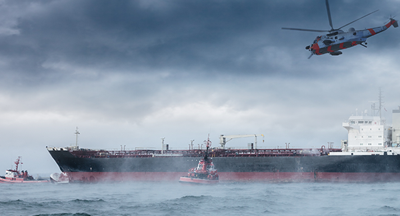ICS Leadership Insights Live: Risk and Shipping round-up
Risks of future pandemics, climate change and fragility of global markets were all discussed by speakers at this weeks ICS Leadership Insights Live.
ICS Secretary General Guy Platten, noted the increased risks shipping has had to navigate in the past year:
“Shipping has always had plenty on its risk agenda but add in the pandemic and the recent blockage of the Suez Canal, crew change crisis, vaccinations, and it is evident just how critical a role that shipping plays in the global economy, and the scale and complexity of risk that must be managed by the industry.”
While shipping continues to face the challenges of COVID-19, there a no shortage of risks on the horizon that the industry must prepare for.
COVID-19 fallout
Louise Nevill, CEO Marine and Cargo, Marsh Specialty, said there will be many lessons to be learnt from the pandemic for shipping and for insurers.
“While the insurance industry has been and will continue to pay hefty claims during COVID it has come under fire to some extent for pandemic exclusions. Many insurers are facing litgation because of these exclusions. think it’s demonstrated that there is more we can do to support our customers by providing protection for the changing risks that they face. And some of these risks may even be at the scale that require partnership with governments.”
Nick Shaw, CEO International Group of P&I Clubs noted that despite the crew change crisis shipping had shown resilience against the massive risk imposed by the pandemic.
“If you look at Clarkson’s data for the end of 2020 97% of the maritime global trade that was budgeted to happen, happened. The shipping industry reacted and very positively.”
He echoed Nevill’s sentiments that shipowners “do not want new, knee jerk reactions from insurers and slam on new exclusions for pandemics”. He added: “It is important to take a look at all these risks, look at the claims, assess them, and if a similar situation occurs we are better prepared and things will kick into place.”
Juan Riva Francos, CEO Suardiaz Group; and President Suardiaz Energy, noted new risks that have emerged from the pandemic.
“After one year of COVID we face a new main problem the global microchips shortage. We are involved in the automotive industry and that hit very heavily in all sectors. But without microchips for cars, we had no cars to ship. This kind disruption is not new but the pandemic has shown us how reliant we are on just a few countries or sometimes one country.
Governments and companies are re-thinking this trend of outsourcing and big question hangs over this. I don’t think it will be the end of globalisation but we may see near-globalisation, which may lead to shorter supply chains.”
Climate change
This global risk is one all speakers agreed shipping must face and adapt to, and quickly. This includes navigating shifting regulations, decarbonisation targets and corporate responsibility in answer to shareholder and customer demands.
Francos said that climate change is an “important challenge” for shipowners, not only looking at short-term regulatory change but how corporate responsibility on evironmental issues must increasingly form part of business models, especially as shippers demand smaller carbon footprints.
“Questions remain. How do we commit to decarbonisation if the necessary technology and fuels do not exist? The ship of the future is not defined, the technology is not material enough and many safety challenges remain to be overcome. We are in a business of paying several million dollars for an asset with a 20-year payback period, yet we don’t know how we will be obligated to operate them in five or 10 years.”
Shaw stressed that the emergence of Environmental Social Governance (ESG) is “something no one can ignore”. He said ESG will remain for the foreseeable future.
“A big issue for us has been greater interference and more governmental regulation on marine issues, which relates to ESG, where governments have felt that the IMO hasn’t moved quite fast enough. We have had the EU going harder on emissions regulations than the IMO has so far and the concern here is a lack of uniformity can lead to more difficult technical and commercial decisions for shipowners.”
Nevil noted that there will likely be more frequent extreme weather events as a result of cliamte change, and increasingly intense storms would likely impact the maritime supply chain more than vessels themselves.
“We could see a higher frequency of port closures, meaning more rerouting, potential damage to infrastructure and maritime choke points could be disrupted and even cause geopolitical tensions,” she said
Need for flexibility
Francos said that as has been seen with the microchip shortage, shipping must do more to account for the unexpected.
“Now we don’t need only a plan b but a plan c and plan d. Clients were talking ‘just in time’, now we must change to ‘just in case’ as everything changes so quickly. It can be over demand of computers on week or the need for a new raw material the next. You must be very flexible, and again, this is difficult when you rely on expensive asset that has a 20-30 year life span.”
Risks on the horizon
For Nevill, the potential for a global economic crisis post-pandemic is the biggest risk shipping faces:
“Due to the global nature of what we do, shipping is sensitive to economic conditions and unfortunately the pandemic has made the likelihood of economic crisis more likely, that might mean bankruptices, inability to get ship finance, consolidation and geopolitical issues.”
Nick added that while the International Group of P&I Clubs sees ESG and decarbonisation maritime will likely remain front and center when looking at emerging risks, they are also looking into the risks posed by future pandemics, containers ship fires and malicious cyber attacks.
Francos ended proceedings by suggesting three areas where shipping can add resilience to weather the risks discussed during the event:
“First, shipping companies must enchance capacity for uncertainty, not knowing what will happen next month, let alone next year. Second, analysis of new fuels should be carried out to avoid a step backwards by taking shortcuts. Third, while shipping has a strong tradition and we must preserve the experience within the industry we must also introduce new technology and innovation.”
Watch the full video of the event below
Related content

ICS Barometer delivers snapshot of industry sentiment on key issues

Alternative fuels revolution an opportunity to boost trade resilience

Red Sea attacks join triple threat to global trade

